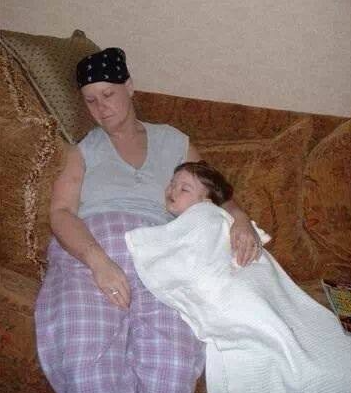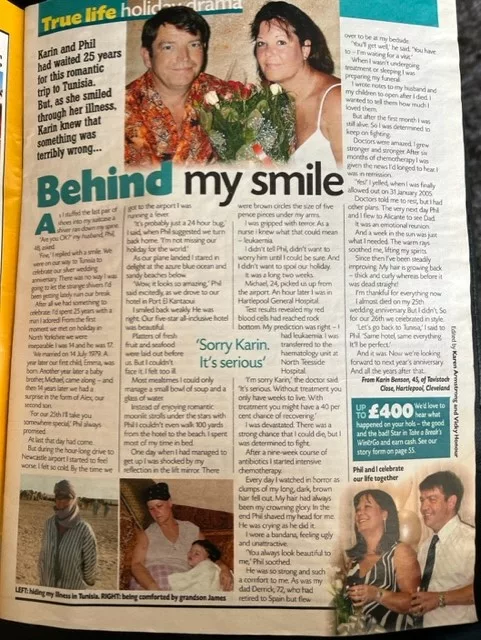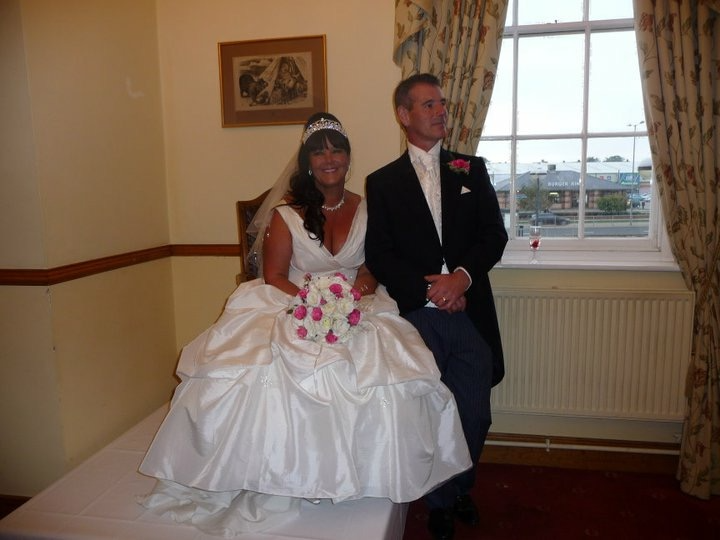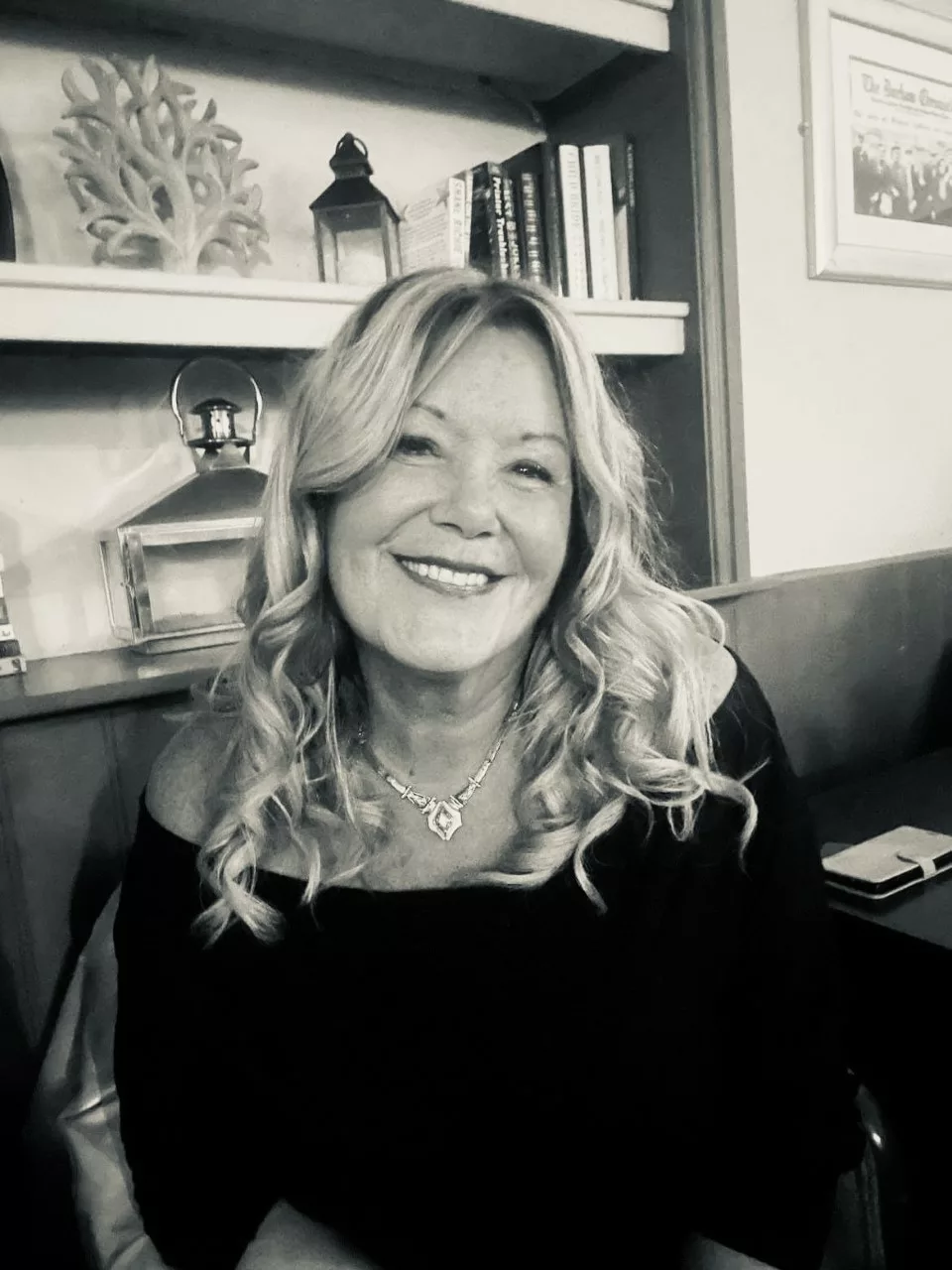
06 Jun 2023
Wigs, building gardens and strange symptoms – Karin’s journey to remission
 Karin’s 25th wedding anniversary celebrations were something she had looked forward to for months. But the party for family and friends, and romantic holidays the school nursing sister had excitedly booked, were ruined by a nightmare of illness that was eventually diagnosed as leukaemia.
Karin’s 25th wedding anniversary celebrations were something she had looked forward to for months. But the party for family and friends, and romantic holidays the school nursing sister had excitedly booked, were ruined by a nightmare of illness that was eventually diagnosed as leukaemia.
“July 14th 2004 was our 25th wedding anniversary,” said Karin, who lives in Wingate, County Durham. “The party on the night was amazing and everything went to plan. We had decided to have a few days away in Prague to celebrate, before going to Tunisia immediately afterwards for a holiday with our youngest son Alexander who was 10 at the time.
When symptoms started appearing
“But once I got to Prague, things started to go wrong. My ankles were swollen, I had a temperature and I just wanted to sleep all the time. When I returned home I noticed a red rash on my legs so I booked a GP appointment. The GP told me there was nothing to worry about, it was my age and probably where I’d shaved my legs. So I mentioned the swollen ankles and mouth ulcers I’d had, and asked for a blood test as I was worried we were going to Tunisia the next day. He said there was no need for a blood test and refused to do it. So began two weeks of what should have been paradise but turned into hell.”
Mother-of-three Karin and her husband Phil travelled to Newcastle airport but while she was waiting for the flight to be called she fell asleep in the departure lounge and Phil had to wake her up. She also noticed she had a strange metallic taste in her mouth. On her first day in Tunisia Karin managed to find a pharmacy which prescribed her antibiotics. But after a relaxing day she found herself struggling to walk back from the pool and Phil had to help her back to bed.
“By the end of two weeks I was almost bedridden,” said Karin. “I couldn’t pack to go home or do anything for myself. I couldn’t stop shaking all the time, and also noticed 5p sized bruises all over my arms and body. And I could hardly breathe. I self-diagnosed pneumonia. I’m a nurse but in retrospect I still didn’t understand what was wrong with me.
“My eldest son Michael picked us up from the airport back in Newcastle and I slumped in the back of the car. He said “What’s wrong Mum?” and my husband said it was probably flu but I had been like that for the whole of the holiday. My son drove me straight to A&E. They also thought I had pneumonia and rang the hospital to get me a bed and told my husband to take me straight there. Once settled in hospital I was woken around midnight by the doctor, who told me my haemoglobin was three – it should have been 13.5. She took another blood test and by that time I knew myself it was leukaemia.”
 “Beyond terrified”
“Beyond terrified”
Karin was transferred to the haematology unit of North Tees University hospital. The next day, 24th August 2004, she was diagnosed acute myeloid leukaemia (AML). Karin was 44 and told may only have a week to live. It was explained to her that she needed to start immediate chemotherapy and also had to have a bone marrow extraction for further tests on the type of leukaemia to be carried out.
“I was beyond terrified of having the bone marrow extraction, but I was given good sedation so although awake I didn’t know anything about it,” said Karin. “Once I came round I was attached to units of blood and within a day I felt so much better. My results were back and showed I actually had acute promyelocytic leukaemia (APL). It’s a subtype of AML with a good response rate to treatment for many people. But the bad news was I came back from Tunisia with E Coli and because of that I could not have chemo. And of course time was of the essence.”
Karin eventually started chemo four weeks later once the infection had cleared. She was kept alive in the meantime with blood transfusions. She was in hospital for a total of six months, only being allowed home for short periods of time in between the four rounds of chemo.
“I was very scared about the chemo and it burned when it went into my body,” said Karin. “I peed orange for a few days. It was scary hearing this machine surge into my body every few minutes. Two weeks after the chemo began my hair fell out I cried and cried. I would still get the shakes and felt really weak. And getting used to a bald head was not good although the hospital ordered me two lovely wigs that mirrored my real hair. I looked on the positive side most days but in reality I was very ill and threw up a lot until they got the sickness regulated by injecting the chemo.
“For the next few weeks I had good days and bad days where all I did was sleep. I woke and my Dad was sat with me, then when I woke again my Aunt was with me and it was two days later. Phil sat with me daily and my sister kept me alive by donating her blood and platelets.”
Karin was eventually sent home in February 2005. She then took part in a trial for a medication called ATRA which she had to take as a tablet for three years.
A variety of pressures
Sadly Karin and Phil divorced after a variety of pressures in their marriage including Karin’s leukaemia. Phil tragically passed away from prostate cancer in 2022.
A year after her diagnosis Karin held a ‘Party for Life’ event for 400 people with raffles, auctions and a ‘pie and pea’ dinner, and raised over £40,000 for the haematology of North Tees University Hospital. Some of the money was spent on a machine that gave instant blood test results so they no longer had to be sent to a lab, and rest went towards creating a garden for patients to enjoy while having their chemotherapy.
“My little room which became my home for so long was lovely. It had everything I needed and I shared a shower room with next door bedroom. But my view out the window was a concrete mess. I was told by the nursing staff that they had permission to build a garden. So once I was strong enough I decided to help them do it.”
 Karin has officially been in remission since 2008. In 2010 she married her second husband James. She’s now retired and has lived to enjoy her four grandchildren.
Karin has officially been in remission since 2008. In 2010 she married her second husband James. She’s now retired and has lived to enjoy her four grandchildren.
“Demand a blood test”
“My message to those with any strange symptoms is to demand a blood test,” said Karin. “Don’t be fobbed off like I was. Bruising that refuses to go away, any skin changes, they’re all signs. I had a huge bruise on my leg in Tunisia which actually got darker rather than fading. Mouth ulcers that refuse to go, flu-like symptoms, a constant cough. The signs all add up, and they need investigating urgently because leukaemia can actually kill you in days.”

Read more stories from people affected by leukaemia.
Related posts
13 November 2023
This year’s Olive Boles Innovation Award winner announced
Dr Kevin Rattigan, University of Glasgow, has been selected as this year’s Olive Boles Innovation Award winner – an accolade given to one Leukaemia UK John Goldman Fellow each year….
20 September 2021
Leukaemia charities unite in Blood Cancer Awareness Month to improve diagnosis and the chances of survival
Leading UK leukaemia charities Leukaemia Care and Leukaemia UK have announced a new collaboration to increase awareness of the signs and symptoms of leukaemia and drive improvements in the diagnosis of the disease. The campaign, Spot Leukaemia, is running throughout September – Blood Cancer Awareness Month.
8 December 2023
Family ‘devastated’ by leukaemia after double diagnosis say ‘so much more needs to be done’
57-year-old Hampshire resident Karen Cracknell is supporting Leukaemia UK’s appeal for funds this Christmas, having experienced the ‘devastating impact’ after both her mother and father were diagnosed with blood cancer. …
21 September 2022
A record year for Leukaemia UK London Marathon runners
62 runners put their best feet forward for Leukaemia UK A record 62 runners are taking part in this year’s London marathon to help fund vital research into leukaemia diagnosis,…